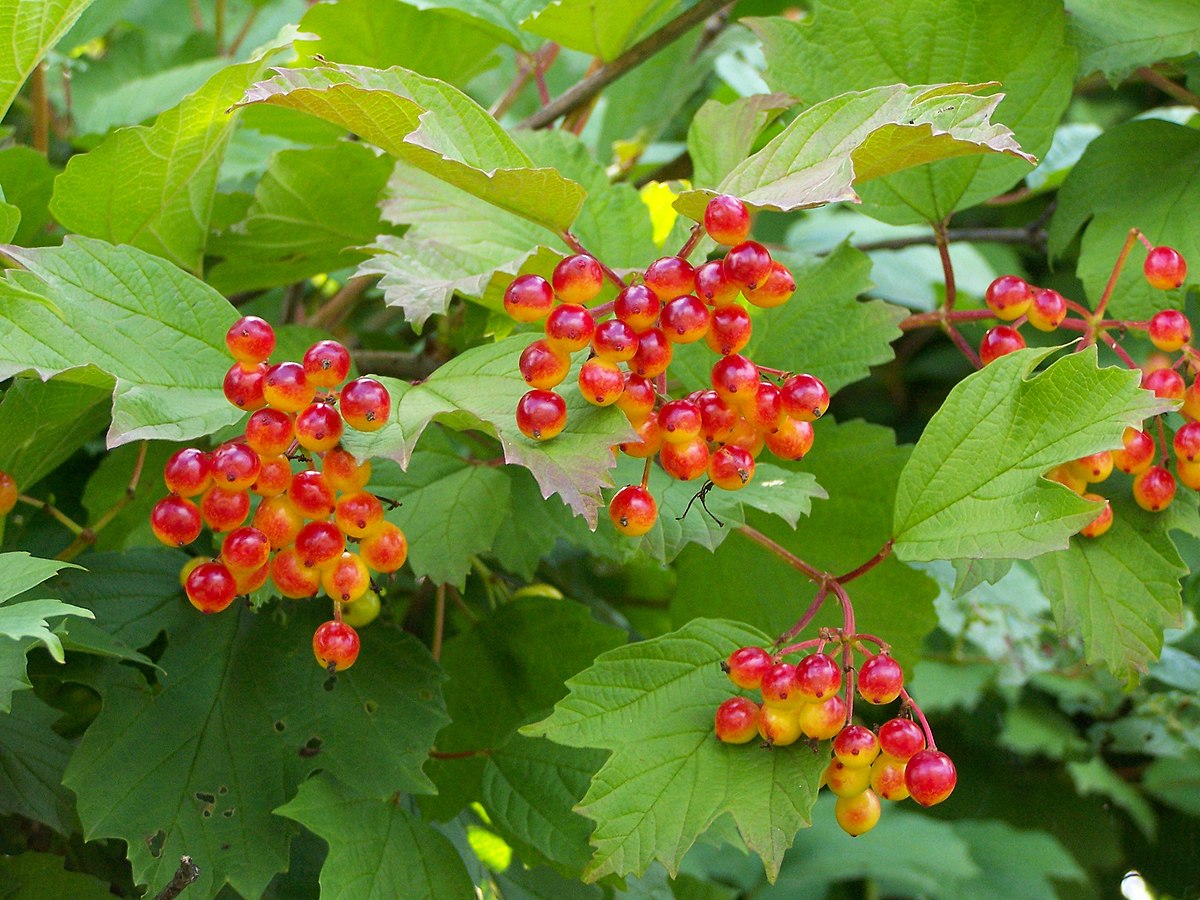Also Known As:
-
Guelder Rose
-
European Cranberry
-
Cramp Bark
-
Snowball Tree
-
Red Elder
-
Rose Elder
Part Used:
-
Fresh bark
-
Leaves
Description:
Viburnum opulus is a shrub (small bush) that grows naturally in Europe and Asia. It belongs to the same family as honeysuckle. Some people also consider a similar plant from North America called Viburnum trilobum as a type of this plant.
-
It has flat, white flowers in round clusters about 3 to 5 inches wide.
-
The outer flowers are bigger but sterile (they don’t produce seeds), while the tiny flowers in the middle produce nectar for insects.
-
After flowering, it grows bright red berries which birds love to eat.
-
In August, the berries turn red, and by autumn, the leaves become bright red or purple before falling.
-
Its leaves look like maple leaves and the shrub can grow up to 5 to 10 feet tall.
-
Viburnum can spread quickly, sometimes taking over the space of other plants.
-
In Canada, its berries are sometimes used instead of cranberries.
What It Contains:
The bark contains a natural compound called scopoletin, which has calming effects, especially on muscles like the uterus.
Medicinal Uses:
Main properties:
-
Antispasmodic (relieves cramps and spasms)
-
Astringent (tightens tissues)
-
Sedative (calms the nerves)
Uses:
-
The bark is commonly used for treating muscle cramps, asthma attacks, colic (stomach pain in babies), and painful menstruation (period cramps).
-
A tea made from the bark helps relieve all kinds of spasms, like:
-
Menstrual cramps
-
Spasms after childbirth
-
Preventing miscarriage
-
-
It’s also used to calm nervousness, anxiety, and weakness.
-
The leaves and berries are sometimes used for:
-
Treating vitamin C deficiency (scurvy)
-
As a laxative
-
As a mild vomit-inducing medicine if needed in certain conditions
-
Other Uses:
-
The bark is collected in autumn (before leaves change color) or in spring (before leaves grow) and dried for later use.
-
The plant is also grown as a decorative garden shrub and the berries are sometimes used for making ink.
Note:
Though it’s a useful plant in herbal medicine, it should be used carefully. Always talk to a doctor or herbal specialist before using it, especially for pregnancy-related issues.
Speech Disorder
A speech disorder, also known as a speech impairment...
ADHD
Attention-deficit / hyperactivity disorder (ADHD) is a...
Cerebral Palsy(CP)
Cerebral palsy (CP) is a group of neurological disorders...
Cancer
Cancer is a broad term for diseases where cells...




